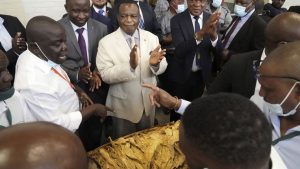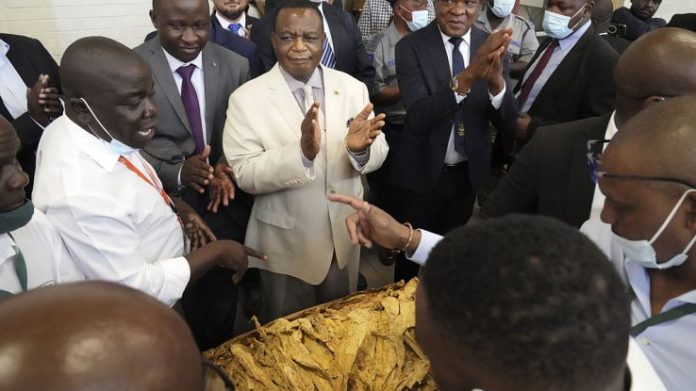Zimbabwe’s powerful vice president said the government will block a university scholarship for young LGBTQ+ people, a move that human rights groups described Friday as a perpetuation of the African country’s homophobic practices.
The state university scholarship for people between the ages of 18 and 35 is sponsored by GALZ, a membership organization for LGBTQ+ people in Zimbabwe. The association started offering it in 2018 without incident. But a recent online advertisement inviting applications attracted a harsh response from Vice President Constantino Chiwenga, a self-proclaimed devout Catholic and former army commander.
In a strongly worded statement Thursday night, Chiwenga claimed the scholarship was “a direct challenge” to the government’s authority.
“Our schools and institutions of higher learning will not entertain applicants, let alone enroll persons associated with such alien, anti-life, un-African and un-Christian values which are being promoted and cultivated by, as well as practiced in decadent societies with whom we share no moral or cultural affinities,” he said.
GALZ has previously said the scholarship seeks to provide equal access to state universities for LGBTQ+ people who are often ostracized by their families and struggle to pay for higher education. It did not comment on the vice president’s statement.
However, a coalition of human rights groups that GALZ belongs to said it demonstrated that sexual and gender minorities are endangered in Zimbabwe.
“We are extremely concerned about the statement from the second-highest office in the land because it exhibits intolerance, especially taking into account that the advertisement opens young people to so many opportunities,” Wilbert Mandinde, the programs coordinator at Zimbabwe Human Rights NGO Forum, said on Friday.
Like many African countries, Zimbabwe has laws criminalizing homosexual activity. Sex between men carries a potential sentence of up to a year in prison, and the country’s constitution bans same-sex marriages.
Chiwenga said Zimbabwe’s anti-gay laws make “any (scholarship) offers predicated on the same aberrations both unlawful and criminal, and a grave and gross affront on our national values and ethos as a Christian nation.”
He said the government “will not hesitate to take appropriate measures to enforce national laws,” adding that young people “should never be tempted to trade or sell their souls for such abominable and devilish offers.”
Zimbabwe has a history of discriminating against lesbian, gay, bisexual, transgender, intersex and queer people. Former President Robert Mugabe, who ruled the southern African nation for 37 years, once described them as “worse than dogs and pigs” and unworthy of legal rights.
President Emmerson Mnangagwa, who took power following a 2017 coup led by Chiwenga when he was still an army general, has been less publicly vocal in his anti-LGBTQ+ rhetoric. But Chiwenga’s threat to ban the scholarship highlights the continued hostility from authorities and sections of society, including influential religious groups, remains.
In December, Zimbabwe’s Catholic bishops, like many of their African counterparts, cautioned against the Pope Francis’ declaration allowing priests to offer blessings to same-sex couples, citing “respect of the law of the land, our culture and for moral reasons.”
Zimbabwe has in the past stopped public acts that may appear to demonstrate approval of gay people.
In 2021, a planned visit by a gay South African celebrity, Somizi Mhlongo, for the reopening of a trendy Zimbabwean restaurant was canceled after a Christian sect and members of the ruling ZANU-PF party’s youth wing vowed to block his appearance.



